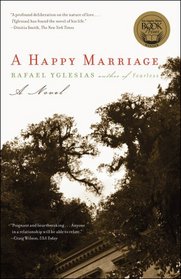Helpful Score: 1
When I first started reading this book, I had no idea it was an autobiography (I just skimmed over the first paragraph of the description to see if it was something I thought I might like). One day (after I had read about 4 chapters) I realized that the author was writing about himself and his wife, not as a true story, but a fictional account based on a true story. The chapters alternate between the present time and the first three weeks of their relationship, so you get a sense of who they were, who they are now and what brought them there. Though this book has is on a heavy topic, there are also lots of light-hearted memories shared. Not only was he sad about his wife's illness and impending death, he began to realize what it actually MEANT that she was dying. Not only would she be gone, but the future he had envisioned for them together was dying too. I'd definitely recommend this book.
I'm in the minority of critical and reader reviews on this one. I did not like A Happy Marriage. There are nice passages, such as when Enrique first meets Margaret and is totally smitten; the couple's trip to Venice and when Enrique wrangles with his in-laws over Margaret's final wishes. But, I grew to really dislike Enrique Sabas/Rafael Yglesias. I include the author here since it is a highly autobiographical novel. Enrique's obsession of his manhood (its lack of functionality during courtship and the neglect of it by his young wife) grew tiresome. Then it is revealed that Enrique/Rafael betrayed his wife in a most profound way. He never told his wife, but shares this with his readers, including their children. He also betrayed his wife by graphically describing her final night. While I applaud the authentic portrayal of the ravages of cancer, I felt this was another attack on her dignity. It seem more important to the author to give us a self-serving account of his caregiving.
This is a beautifully written account of a 29-year marriage that is ending as the wife dies slowly from cancer. In alternating chapters, we observe the beginning and the evolution of the relationship and its conclusion. The husband, Enrique, is shown with his human flaws and failings, as well as his heart-wrenching courage when facing his wife's end-of-life struggles.




![header=[] body=[Get a free book credit right now by joining the club and listing 5 books you have and are willing to share with other members!] Help icon](/images/question.gif?v=34a0bd38)
